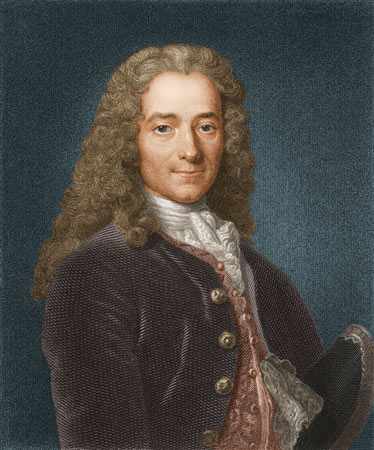 This year we kick off with four sessions that each presents a different perspective on the continuing relevance of the Enlightenment - the “revolution of the mind” that transformed Europe and North America in the 17th and 18th centuries.
This year we kick off with four sessions that each presents a different perspective on the continuing relevance of the Enlightenment - the “revolution of the mind” that transformed Europe and North America in the 17th and 18th centuries.
The five talks that follow will take up a variety of philosophical topics: ethics and aesthetics; culture and social norms; the possibility of time-travel; the mind and cognition; and the ethical dilemmas posed by a potentially massive loss of biodiversity.
Talk 1 - Saturday April 8 at 4pm
IN DEFENCE OF THE ENLIGHTENMENT
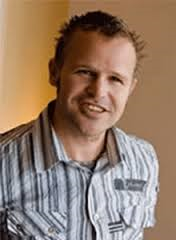 OUR OPENING SPEAKER will mount a vigorous defence of the Enlightenment, disputing images in this era of our intellectual history which have been erected, firstly by the reactionary Right, and more recently by the post-modern Left. He will argue that, contrary to its critics, the Enlightenment was not about utopian rationalism and system-building, nor ethnocentric celebrations of European uniqueness, but rather as that period of modern intellectual life which tried to come to terms with the de-centring of the medieval worldview at the hands of modern science; the discoveries of the new and ancient Chinese worlds; the recovery of the pagan classics; and the development of a new reading-public beyond cloisters and universities.
OUR OPENING SPEAKER will mount a vigorous defence of the Enlightenment, disputing images in this era of our intellectual history which have been erected, firstly by the reactionary Right, and more recently by the post-modern Left. He will argue that, contrary to its critics, the Enlightenment was not about utopian rationalism and system-building, nor ethnocentric celebrations of European uniqueness, but rather as that period of modern intellectual life which tried to come to terms with the de-centring of the medieval worldview at the hands of modern science; the discoveries of the new and ancient Chinese worlds; the recovery of the pagan classics; and the development of a new reading-public beyond cloisters and universities.
Speaker: Matt Sharpe Associate Professor of Philosophy at Deakin University.
Talk 2 - Saturday April 22 at 4pm
THE ENLIGHTENMENT'S CELEBRATION OF REASON
 IN 1794, in response to a question from a Prussian Minister, Kant spelt out what he and his fellow thinkers considered to be the defining spirit of their age – Enlightenment. He explained that Enlightenment was “man's release from his self-incurred tutelage”, its motto being “Sapere aude!” (“Have courage to use your own reason!”).
IN 1794, in response to a question from a Prussian Minister, Kant spelt out what he and his fellow thinkers considered to be the defining spirit of their age – Enlightenment. He explained that Enlightenment was “man's release from his self-incurred tutelage”, its motto being “Sapere aude!” (“Have courage to use your own reason!”).
Kant and others believed that this courageous dedication to reason was, unambiguously, both a new and a good thing. For the Marquis de Condorcet it was “a view of the human race, emancipated from its shackles, released from the empire of fate and from that of the enemies of its progress, advancing with a firm and sure step along the path of truth, virtue and happiness”. Yet when he wrote this, Condorcet was on the run from that very French Revolution which the Enlightenment inspired.
This poignant contradiction between faith and actuality stands as an image of the Enlightenment itself. For it was, from the start, riven by internal tensions. At the same time as it demanded freedom for reason, it demanded absolute respect for the authority of reason. These tensions continue to shape our lives today, leaving us with the question of what to make of the Enlightenment’s sublime self-confidence.
Speaker: Tony Lynch Senior Lecturer in Philosophy at the University of New England.
Talk 3 - Saturday May 6 at 4pm
THE DIALECTIC OF ENLIGHTENMENT
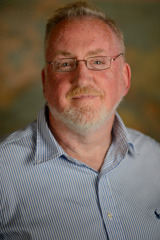 IN THE DARKEST DAYS of the second World War, Max Horkheimer and Theodor Adorno overturned the wisdom of modern times by suggesting that the idea of a constant struggle between Enlightenment and myth overlooked an unacknowledged identity between these alleged eternal combatants. Our speaker will briefly explain and examine this claim in its historical context; consider the responses of the subsequent generation; before concluding with a contemporary evaluation of its remaining relevance.
IN THE DARKEST DAYS of the second World War, Max Horkheimer and Theodor Adorno overturned the wisdom of modern times by suggesting that the idea of a constant struggle between Enlightenment and myth overlooked an unacknowledged identity between these alleged eternal combatants. Our speaker will briefly explain and examine this claim in its historical context; consider the responses of the subsequent generation; before concluding with a contemporary evaluation of its remaining relevance.
Speaker: John Grumley Associate Professor of Philosophy at Sydney University.
Talk 4 - Saturday May 20 at 4pm
Panel discussion: THE ENLIGHTENMENT LEGACY
HOW SHOULD WE assess the legacy of the Enlightenment and its continuing influence on modern civilisation? Is it something worth fighting for?
Panelists: Ted Sadler lectured in philosophy at Sydney University and the Australian Catholic University and has written several books on German philosophy. Peter Baldwin chairs the Blackheath Philosophy Forum and was a minister in the Hawke and Keating governments.
Talk 5 - Saturday May 27 at 4 pm
THE SUBLIME IN ETHICS AND AESTHETICS
 OUR SPEAKER WILL discuss how the sublime emerges as one of the core concepts of the developing tradition of aesthetics among British and German philosophers in the 18th century, focusing on how Kant - with a nod back to the Stoics, chiefly Seneca - argues for its centrality to human moral psychology and the development of character.
OUR SPEAKER WILL discuss how the sublime emerges as one of the core concepts of the developing tradition of aesthetics among British and German philosophers in the 18th century, focusing on how Kant - with a nod back to the Stoics, chiefly Seneca - argues for its centrality to human moral psychology and the development of character.
Speaker: Melissa Merritt Senior Lecturer in Philosophy at the University of NSW
Talk 6 - Saturday June 17 at 4 pm
HABIT AND SOCIAL CHANGE
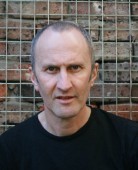 TRADITIONALLY, philosophy has argued that reason and good argument have the central role in changing norms (values, standards). Our speaker will argue that social and normative change is a more complex process than offering good reasons. Understanding the difficulties involved in normative change requires an appreciation of the role of habit (or second nature) in the establishment of the norms that underpin much of our action. His talk will draw on the account of habit in Dewey and Hegel to examine the way in which norms become embodied.
TRADITIONALLY, philosophy has argued that reason and good argument have the central role in changing norms (values, standards). Our speaker will argue that social and normative change is a more complex process than offering good reasons. Understanding the difficulties involved in normative change requires an appreciation of the role of habit (or second nature) in the establishment of the norms that underpin much of our action. His talk will draw on the account of habit in Dewey and Hegel to examine the way in which norms become embodied.
Speaker: Simon Lumsden Senior Lecturer in Philosophy at the University of NSW
Talk 7 - Saturday June 24 at 4 pm
THE PARADOXES OF TIME TRAVEL
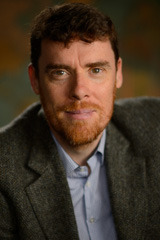 ISAAC ASIMOV wrote: “The dead giveaway that true time-travel is flatly impossible arises from the well-known paradoxes it entails. So complex and hopeless are the paradoxes that the easiest way out of the irrational chaos that results is to suppose that true time-travel is, and forever will be, impossible.” In this talk our speaker will introduce some of these alleged paradoxes of time travel and argue that they are not really so troublesome after all and that, while time travel may or may not be physically possible, there are no good conceptual reasons for thinking that it is impossible.
ISAAC ASIMOV wrote: “The dead giveaway that true time-travel is flatly impossible arises from the well-known paradoxes it entails. So complex and hopeless are the paradoxes that the easiest way out of the irrational chaos that results is to suppose that true time-travel is, and forever will be, impossible.” In this talk our speaker will introduce some of these alleged paradoxes of time travel and argue that they are not really so troublesome after all and that, while time travel may or may not be physically possible, there are no good conceptual reasons for thinking that it is impossible.
Speaker: Nicholas Smith Professor of Philosophy at Sydney University
Talk 8 - Saturday July 8
WHY DOES ART MATTER TO US?
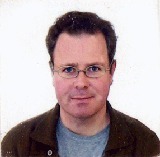 MOST PHILOSOPHERS who approach the topic of art ask what Nigel Warburton calls “the art question”: What is art? In this talk our speaker will pursue another no less important question, namely: Why does art matter to us in the way that it does? What is at issue is art that speaks to us, that may be of local or cultural importance, perhaps even internationally recognized art that has passed the test of time, being found valuable by different cultures and peoples over large periods of time such as Shakespeare’s plays.
MOST PHILOSOPHERS who approach the topic of art ask what Nigel Warburton calls “the art question”: What is art? In this talk our speaker will pursue another no less important question, namely: Why does art matter to us in the way that it does? What is at issue is art that speaks to us, that may be of local or cultural importance, perhaps even internationally recognized art that has passed the test of time, being found valuable by different cultures and peoples over large periods of time such as Shakespeare’s plays.
Speaker: David Macarthur Associate Professor of Philosophy at Sydney University
Talk 9 - Saturday July 22 at 4 pm
BIODIVERSITY AND TRIAGE
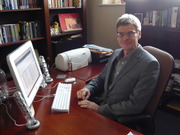 WE ARE in the midst of one of the largest mass extinction events in Earth's history. Many species have little chance of survival, and for many others their fate depends on conservation-management strategies. Sadly, it is not possible to save all the threatened species. This has led some conservation biologists to argue for environmental triage. I will give a qualified defence of triage, outlining its theoretical underpinnings and highlighting its limitations.
WE ARE in the midst of one of the largest mass extinction events in Earth's history. Many species have little chance of survival, and for many others their fate depends on conservation-management strategies. Sadly, it is not possible to save all the threatened species. This has led some conservation biologists to argue for environmental triage. I will give a qualified defence of triage, outlining its theoretical underpinnings and highlighting its limitations.
Speaker: Mark Colyvan Professor of Philosophy at Syney University